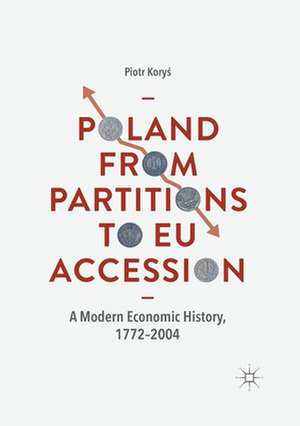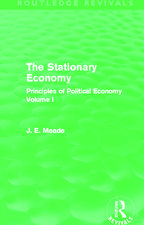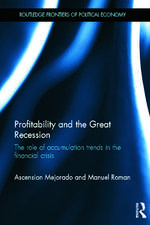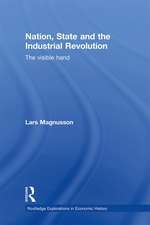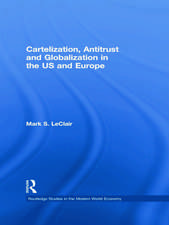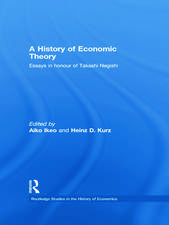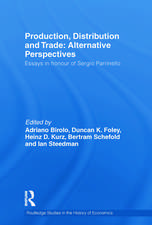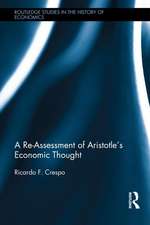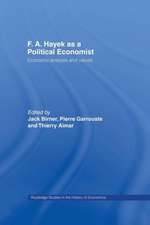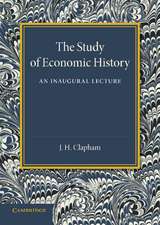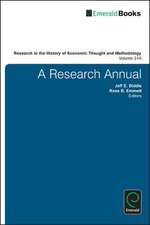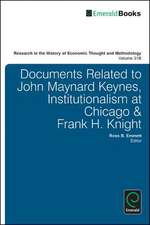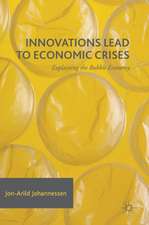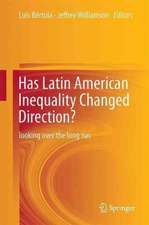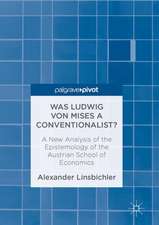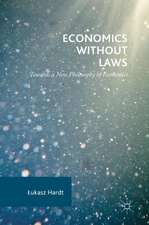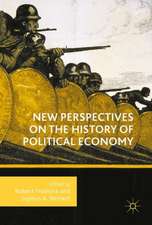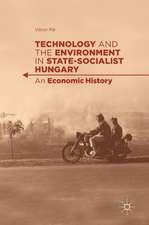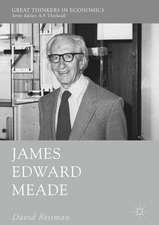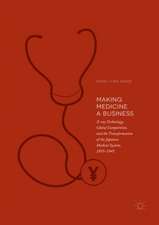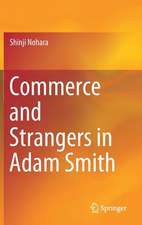Poland From Partitions to EU Accession: A Modern Economic History, 1772–2004
Autor Piotr Koryśen Limba Engleză Paperback – 26 dec 2019
Could Poland really be considered an ‘underdeveloped’ nation throughout the last 200 years? What factors contributed to its ‘backwardness’? Has Poland yet managed to catch up with the West? This book, the first overview of the modern economic history of Poland to be published in English, addresses these and many other questions crucial for developing our understanding of the economic history of modern Central-Eastern Europe. The economic development of Poland is analyzed through data and statistics, as well as through analysis of the ideas that paved the way for the politics of economic and social modernization.
| Toate formatele și edițiile | Preț | Express |
|---|---|---|
| Paperback (1) | 728.91 lei 6-8 săpt. | |
| Springer – 26 dec 2019 | 728.91 lei 6-8 săpt. | |
| Hardback (1) | 740.11 lei 6-8 săpt. | |
| Springer International Publishing – 13 dec 2018 | 740.11 lei 6-8 săpt. |
Preț: 728.91 lei
Preț vechi: 888.91 lei
-18% Nou
Puncte Express: 1093
Preț estimativ în valută:
139.48€ • 151.98$ • 117.53£
139.48€ • 151.98$ • 117.53£
Carte tipărită la comandă
Livrare economică 23 aprilie-07 mai
Preluare comenzi: 021 569.72.76
Specificații
ISBN-13: 9783030404345
ISBN-10: 303040434X
Dimensiuni: 155 x 235 mm
Greutate: 0.48 kg
Ediția:1st ed. 2018
Editura: Springer
Colecția Palgrave Macmillan
Locul publicării:Cham, Switzerland
ISBN-10: 303040434X
Dimensiuni: 155 x 235 mm
Greutate: 0.48 kg
Ediția:1st ed. 2018
Editura: Springer
Colecția Palgrave Macmillan
Locul publicării:Cham, Switzerland
Cuprins
Chapter
1:
Introduction:
From
the
“Little
Divergence”
to
Successful
EU
Integration:
Toward
Economic
History
of
Modern
Poland.-
Chapter
2:
The
View
from
Afar:
The
Polish
Economy
between
the
Golden
Age
and
the
Partitions.-
Chapter
3:
The
Age
of
Enlightenment
Reforms
(1772-1795):
Economy
and
Politics
in
the
Late
Eighteenth
Century.-
Chapter
4:
Between
the
Consolidation
from
Above
and
the
Fragmentation
of
the
State
(1795-1830).-
Chapter
5:
On
the
Peripheries
of
the
Modern
Western
World:
Delayed
Social
Reforms
and
Unfinished
Industrial
Revolution
(1830-1870).-
Chapter
6:
The
Dawn
of
Modern
Economic
Growth
(1870-1914).-
Chapter
7:
The
Window
of
Opportunity:
Polish
Lands
during
the
Great
War
(1914-1921).-
Chapter
8:
A
Moment
of
Independence:
Reconstruction
and
Economic
Development
of
the
Second Republic
of
Poland
(1918/21-1939).-
Chapter
9:
Under
the
Nazi
and
Soviet
rule:
Polish
lands
during
World
War
II
(1939-1945).-
Chapter
10:
Communist
Modernization?:
Economic
Development
of
Poland
between
1945
and
1989.-
Chapter
11:
In
Pursuit
of
the
Western
World:
Poland
between
the
Transition
and
the
EU
Accession
(1989-2004).-
Chapter
12:
Conclusion.
Two
Centuries
of
Catching-up
to
the
West.
Notă biografică
Piotr
Koryś teaches
economic
history
at
the
Faculty
of
Economic
Science
at
the
University
of
Warsaw,
Poland.
He
also
holds
the
position
of
Research
Fellow
at
the
same
institution.
He
spent
the
academic
year
2016-2017
as
Visiting
Research
Fellow
at
the
Institute
for
Human
Sciences,
Vienna,
Austria,
wherein
he
worked
on
this
book.
His
research
interests
focus
on
both
quantitative
and
qualitative
modern
economic
histories
of
Poland
and
Central
Eastern
Europe.
Textul de pe ultima copertă
This
book
surveys
Poland’s
move
from
being
a
post-feudal,
backward,
peripheral
country
to
being
a
modern,
capitalist,
European
state:
from
the
partition
of
the
commonwealth
of
Poland
and
Lithuania
to
the
abolishment
of
‘second
serfdom’;
late
industrialization
to
state
socialism;
post-partition
fragmentation
to
post-Second
World
War
westward
dislocation;
and
from
the
‘Solidarność’
movement
to
accession
into
the
European
Union.
Could Poland really be considered an ‘underdeveloped’ nation throughout the last 200 years? What factors contributed to its ‘backwardness’? Has Poland yet managed to catch up with the West? This book, the first overview of the modern economic history of Poland to be published in English, addresses these and many other questions crucial for developing our understanding of the economic history of modern Central-Eastern Europe. The economic development of Poland is analyzed through data and statistics, as well as through analysis of the ideas that paved the way for the politics of economic and social modernization.
Piotr Koryśteaches economic history at the Faculty of Economic Science at the University of Warsaw, Poland. He also holds the position of Research Fellow at the same institution. He spent the academic year 2016-2017 as Visiting Research Fellow at the Institute for Human Sciences, Vienna, Austria, wherein he worked on this book. His research interests focus on both quantitative and qualitative modern economic histories of Poland and Central Eastern Europe.
Could Poland really be considered an ‘underdeveloped’ nation throughout the last 200 years? What factors contributed to its ‘backwardness’? Has Poland yet managed to catch up with the West? This book, the first overview of the modern economic history of Poland to be published in English, addresses these and many other questions crucial for developing our understanding of the economic history of modern Central-Eastern Europe. The economic development of Poland is analyzed through data and statistics, as well as through analysis of the ideas that paved the way for the politics of economic and social modernization.
Piotr Koryśteaches economic history at the Faculty of Economic Science at the University of Warsaw, Poland. He also holds the position of Research Fellow at the same institution. He spent the academic year 2016-2017 as Visiting Research Fellow at the Institute for Human Sciences, Vienna, Austria, wherein he worked on this book. His research interests focus on both quantitative and qualitative modern economic histories of Poland and Central Eastern Europe.
Caracteristici
Reviews
the
complex
path
of
development
of
modern
Polish
economy
in
last
200
years
Analyzes
the
importance
of
Polish
industrialization
in
the
European
periphery
Provides
extensive
socioeconomic
historical
data
of
Polish
lands
Provides
an
overview
of
crucial
intellectual
debates
on
modernization
of
Poland
Analyzes
the
effects
of
discontinuity
on
socioeconomic
development
